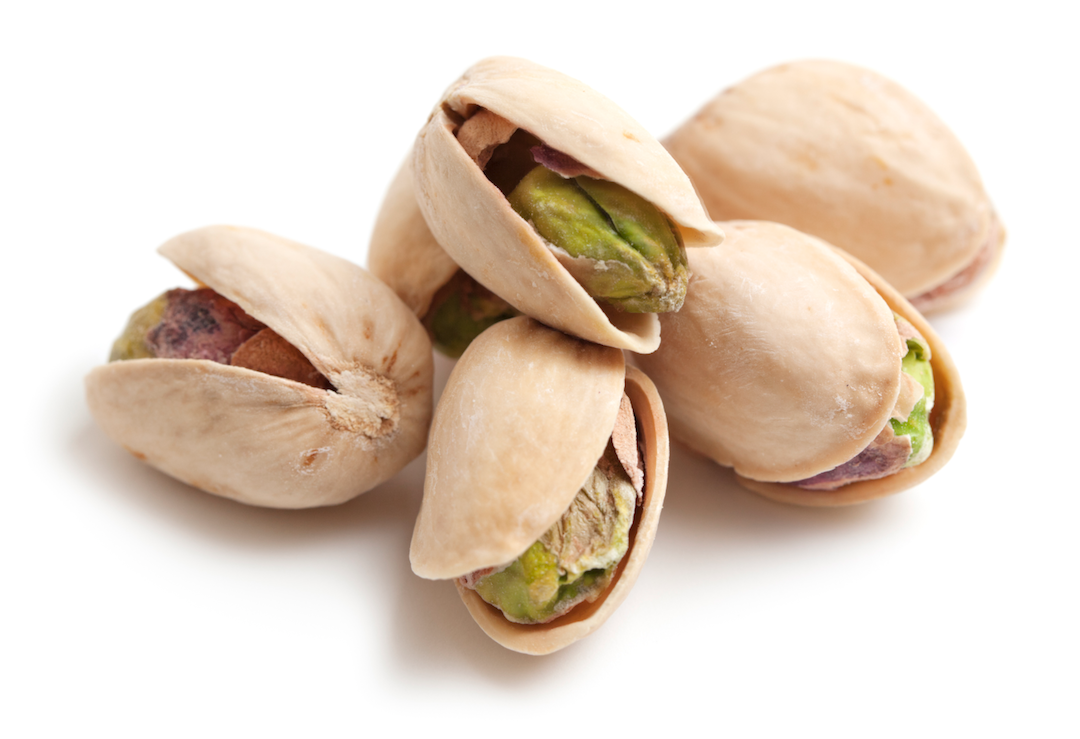Good things do come in small packages! Tree nuts and peanuts (which are actually legumes, not nuts) are packed with protein, fiber, unsaturated fats (the good kind of fat) and more than 19 kinds of vitamins and minerals (including folate, vitamin E, calcium, magnesium and potassium to name a few). They also have a variety of phytochemicals — nutrients found in plants that may help promote good health. Studies have shown that eating nuts may have a variety of health benefits, such as reducing the risk of cardiovascular disease, hypertension and Type 2 diabetes.
HOW MUCH?
Just 1.5 ounces (about 1/3 cup) per day can be part of a healthy diet and provide many important nutrients, even for people who are trying to lose weight. Nuts are relatively high in calories — just 1 ounce of nuts has more calories than a can of soda — so it’s important to enjoy nuts in moderation. Several research studies have shown that regular nut consumption does not lead to weight gain. This may be because nuts are high in fiber, protein and healthy fats, which can help people feel fuller longer and suppress appetite.
“All nuts are packed with a mixture of nutrients important for good health, but each variety does offer something a little different.”
WHICH NUTS ARE BEST?
All nuts are packed with a mixture of nutrients important for good health, but each variety does offer something a little different. For example, peanuts are one of the highest in protein and folate. Almonds are rich in vitamin E, magnesium and fiber. Walnuts have the highest amount of alpha-linolenic acid, an essential omega-3 fatty acid that is also an anti-inflammatory. Brazil nuts have more selenium, which has more antioxidant properties than any other food. So which nut is best? The answer may be to choose a pack of mixed nuts without added salt, sugar or oil!
WHAT ABOUT NUT BUTTERS?
Smooth or crunchy, nut butters can be an easy way to get the health benefits of nuts. Nut butters are delicious spread on bread, crackers or fruit! Just read the ingredient list and choose those without added sugars and fat. Some manufacturers add fat to help prevent the nuts’ natural oils from separating during storage. Nut butters without added fat need to be stirred before eating. Or just store the jar upside down in the refrigerator. If you have patience and a food processor, consider making your own nut butter! Since it’s important to enjoy nuts in moderation, limit nut butters to about two tablespoons per day.
By substituting nuts for an equivalent amount of carbohydrate in an average diet, you can reduce the risk of heart disease by 30 percent.

